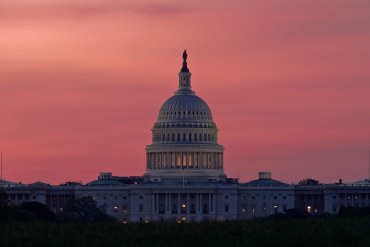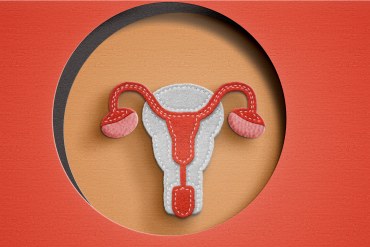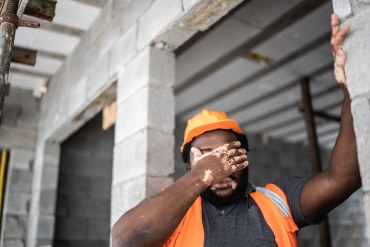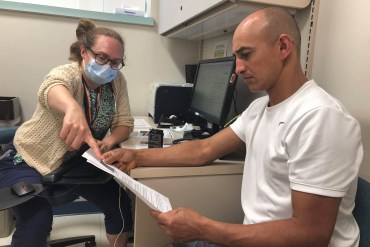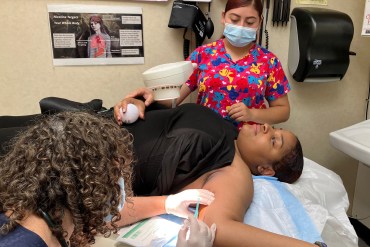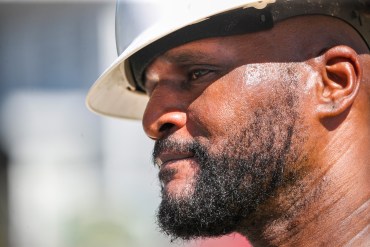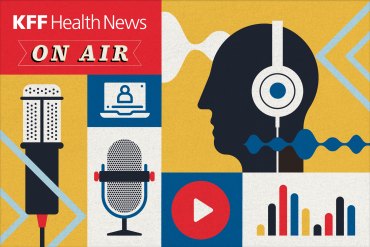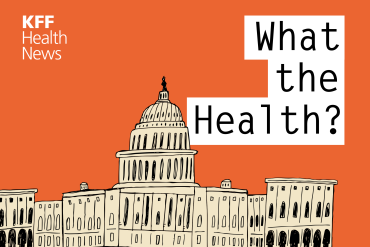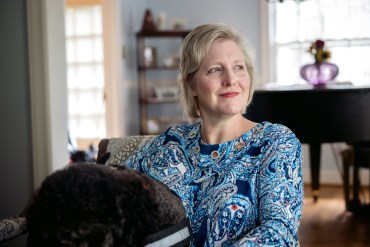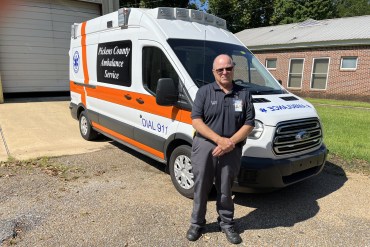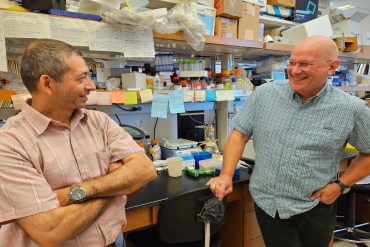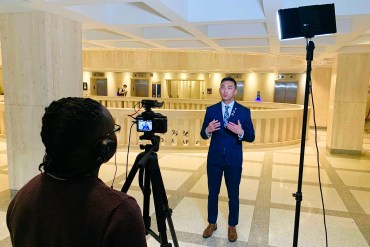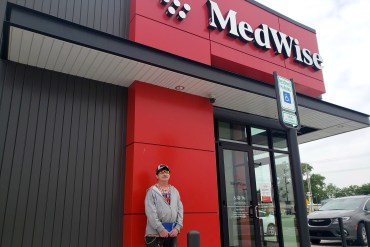‘Dr. Google’ Meets Its Match: Dr. ChatGPT
With the rise of generative AI, people who once turned to “Dr. Google” to check on medical symptoms are now turning to chatbots. Researchers say the bots are often more accurate, but urge caution in the absence of any regulations.
In Move to Slash CDC Budget, House Republicans Target Major HIV Program Trump Launched
Republicans in Congress have proposed substantial cuts to the budget of the Centers for Disease Control and Prevention, taking aim at one of former President Donald Trump’s major health programs: a push to end the HIV epidemic in the U.S.
Even in the Most Depressed County in America, Stigma Around Mental Illness Persists
An estimated 32% of adults in Logan County, West Virginia, have been diagnosed with depression, the highest rate in the United States, according to a recent CDC report.
Cozy Images of Plush Toys and Blankets Counter Messaging on Safe Infant Sleep
Unsafe sleep environments are among the main reasons accidental suffocation or strangulation is a hard-to-solve public health problem.
Mississippi’s Cervical Cancer Deaths Indicate Broader Health Care Problems
Mississippi has among the highest cervical cancer mortality rates in the U.S. When low-income women can’t afford regular preventive care, much less gynecological visits, this highly preventable and treatable cancer becomes a killer.
Workers Pay the Price While Congress and Employers Debate Need for Heat Regulations
Studies suggest official numbers vastly underestimate heat-related injuries and illness on the job. To institute protections, the government must calculate their cost — and the cost of inaction.
When Temps Rise, So Do Medical Risks. Should Doctors and Nurses Talk More About Heat?
The medical dangers of heat are real. But people often ignore public heat alerts or don’t realize how vulnerable they are. A new alert system prompts clinicians to talk about heat with patients.
Californians Headed to HBCUs in the South Prepare for College Under Abortion Bans
As high school graduates prepare to leave states like California that protect abortion rights for historically Black colleges in states where abortion is banned, they’re getting ready to safeguard their reproductive health during college.
More Cities Address ‘Shade Deserts’ as Extreme Heat Triggers Health Issues
Where trees are growing — and who has access to their shade — affects health and well-being, especially in one of the hottest states in the country.
Journalists Track Hospitals’ Delivery of Charity Care and the Menace of ‘Forever Chemicals’
KFF Health News and California Healthline staff made the rounds on national and local media this week to discuss their stories. Here’s a collection of their appearances.
Republican Debate Highlights Candidates’ Views on Abortion
Though health policies in general got little airtime, the discussion of whether candidates support a federal abortion ban underscored how Republicans, in a post-Roe environment, face political challenges on the issue.
What the Health? From KFF Health News: A Not-So-Health-y GOP Debate
The first Republican presidential debate of the 2024 cycle took place without front-runner Donald Trump — and with hardly a mention of health issues save for abortion. Meanwhile, in Florida, patients dropped from the Medicaid program are suing the state for not giving them enough notice or a way to contest their being dropped from the program. Margot Sanger-Katz of The New York Times, Joanne Kenen of the Johns Hopkins Bloomberg School of Public Health and Politico, and Victoria Knight of Axios join KFF Health News’ Julie Rovner to discuss these issues and more. Plus, for “extra credit,” the panelists suggest health policy stories they read this week they think you should read, too.
Dangers and Deaths Around Black Pregnancies Seen as a ‘Completely Preventable’ Health Crisis
Studies show that high rates of Black fetal and infant deaths are largely preventable — and part of systemic failures that contribute to disproportionately high Black maternal mortality rates.
The Painful Pandemic Lessons Mandy Cohen Carries to the CDC
Mandy Cohen, the new director of the Centers for Disease Control and Prevention, earned praise for her leadership and communication as the face of North Carolina’s response to covid-19. People in the state’s most vulnerable communities tell a more complicated story.
Doctors and Patients Try to Shame Insurers Online to Reverse Prior Authorization Denials
Prior authorization is a common tool used by health insurers for many tests, procedures, and prescriptions. Frustrated by the process, patients and doctors have turned to social media to publicly shame insurance companies and elevate their denials for further review.
Life in a Rural ‘Ambulance Desert’ Means Sometimes Help Isn’t on the Way
No local hospital and anemic ambulance services mean residents in rural Pickens County, Alabama, are thrown into perilous situations when they have medical emergencies. It’s a kind of medical care roulette that has become a fact of life for rural Americans who live in ambulance deserts.
Doctors Advocate Fresh Efforts to Combat Chagas Disease, a Silent Killer
Chagas disease, caused by a parasite, affects people primarily in rural Latin America. But an estimated 300,000 residents of the U.S. have the disease, which can cause serious heart problems. Patient advocates call for much more aggressive efforts to fight it.
The CDC Works to Overhaul Lab Operations After Covid Test Flop
In early 2020, U.S. public health labs received covid-19 tests from the Centers for Disease Control and Prevention that were flawed, as a result of poor design and contamination. Now the CDC is overhauling its lab operations, but efforts to be better prepared for future threats won’t be easy, observers say.
Doctors Hesitate to Ask About Patients’ Immigration Status Despite New Florida Law
Florida’s new immigration law requires hospitals to ask patients about their immigration status at admission and in emergency rooms, and report that information plus the cost of care for residents without legal status. Doctors and nurses who oppose the policy seem reluctant to criticize lawmakers for fear of political retribution.
Funyuns and Flu Shots? Gas Station Company Ventures Into Urgent Care
A Tulsa-based gas station chain is using its knowledge of how to serve customers and locate shops in easy-to-find spots to enter the urgent care industry, which has doubled in size over the past decade. Experts question how the explosion of convenient clinics will affect care costs and wait times.





